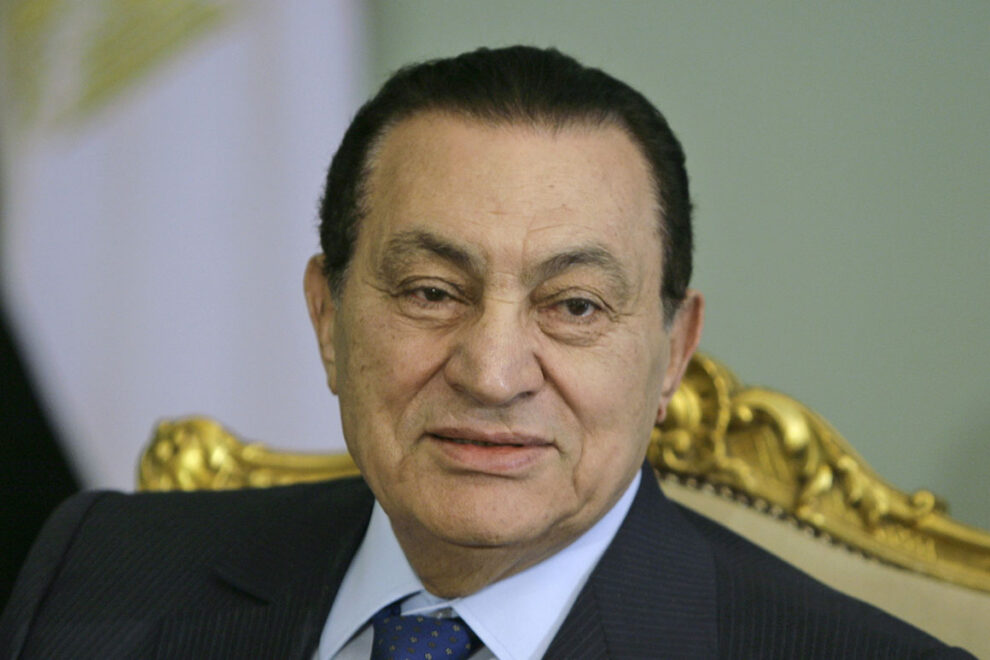With roughly five months until Egypt’s 2024 presidential election, many Egyptians hope the contest will usher in much-needed change. Meanwhile, many others realize that the chances of having a rival contender win at the ballot box are slim—non-existent even—against President Abdel Fattah El-Sisi, who is widely expected to be re-elected for a third six-year term.
Harsh austerity measures introduced in 2016 have left many low and middle-income families grappling with double-digit inflation and unprecedented price hikes. An ongoing security crackdown on dissent and restrictions on freedom of expression have also fueled public discontent, causing government critics to live in fear of arrest, enforced disappearances, or an even worse fate.
Recently, Egyptians have had to brace themselves for frequent power outages amid a sweltering heatwave. The daily blackouts—reportedly caused by a shortage in gas supply for power plants—are testing citizens’ patience which is already wearing thin.
The low expectations of a new president being voted in are partly due to the fact that the 2018 presidential election was a “sham,” according to critics. Sisi was re-elected with 97 percent of the votes amid low turnout after running against a sole rival candidate, who was a self-proclaimed Sisi supporter. The main challenger—Sami Anan, the former military chief of staff—was arrested and a second contender, Ahmed Shafik, was placed under house arrest. The arrests prompted other serious candidates to withdraw, citing harassment and intimidation.
Constitutional amendments overwhelmingly approved in a national referendum held in 2019 have allowed for an extension of the presidential term to six years (from the previous four years). The amendments also scrapped the two-term limit on the president to remain in office. The revisions have paved the way for Sisi to stand for a third six-year term and potentially stay in power until 2030.
As the 2024 presidential election draws near—in late December or early January—Egyptians are witnessing a repeat of the heavy-handed tactics used in the last election in 2018, which according to an opposition candidate, are meant to “silence” him.
Since late April, at least twelve family members and supporters of Ahmed Tantawy, a politician and former member of parliament, have been arrested and detained on charges of “organization.” The arrests, which came on the heels of Tantawy’s announcement of his candidacy for president, are meant “to stifle peaceful dissent,” said Amr Magdi, senior Middle East and North Africa researcher at Human Rights Watch.
Egypt’s liberal Wafd party, which backed Sisi’s re-election bid in the 2018 presidential election, is, thus far, the only political party that has fielded a candidate—Abdel-Sannad Yamama, the party’s leader—in the upcoming election.
In the coming weeks, other political parties are expected to nominate candidates from within their parties for the presidential bid. This move is perhaps intended to give a semblance of a free and democratic election.
In reality, however, there are ongoing attempts to deter would-be challengers like Gamal Mubarak, the younger of former ousted president Hosni Mubarak’s two sons, and Mohammed Anwar Sadat, head of the Reform and Development Party and nephew of the late president Anwar Sadat from challenging Sisi in the election.
Egypt’s pro-state media and MP Mostafa Bakry—a Sisi loyalist—have dismissed the possibility of either of the politicians contesting the election. Referring to an article in the electoral law stipulating that anyone against whom a final ruling has been issued may not run for the presidency, Bakry affirms that neither Mubarak nor Sadat can run in the election as both have been convicted. Still, of the two, Gamal stands out.
Gamal was sentenced to three years in prison in 2016 on the charge of embezzlement of state funds in what was referred to as the Presidential Palaces” case by Egyptian media. He and his businessman brother Alaa were accused of appropriating nearly 125 million Egyptian pounds (approximately $4 million) in state funds that were earmarked for the renovation and maintenance of presidential palaces.
In a televised debate on Al-Arabiya channel in mid-July, Dia Rashwan, the general coordinator of the National Dialogue, asked Gamal if he was considering running in the next election. Alaa, the elder of the two, rebuffed the probing question on social media.
“None of your business, why are you so nosy? The people and their choices have nothing to do with you,” he tweeted, without naming Rashwan.
While Gamal’s plans to succeed his father had fueled public anger in the last years of Mubarak’s rule—ultimately leading to the February 11, 2011 overthrow of the former president by military-backed protests—a lot has changed since. Egypt’s profound economic crisis has dented Sisi’s popularity, and the president is also being accused of “political mismanagement” and “systematic repression” by rights advocates and critics.
Many tired Egyptians have had a change of heart about the 2011 uprising that led to Mubarak’s overthrow and are nostalgic for “the good old days” under the former president’s rule. Images of a smiling Mubarak are circulating on social media platforms with captions about how affordable basic commodities were during his era or how the economic situation has deteriorated since.
Those hardest hit by the crisis are keen on backing Gamal—perhaps out of sheer desperation—should he decide to challenge Sisi in the next election. Muslim Brotherhood sympathizers would also likely throw their weight behind Gamal in the hope that he may open the door for reconciliation and release jailed Muslim Brotherhood leaders and members. Under Mubarak, the Muslim Brotherhood was officially banned but tolerated, and the opposition group could field candidates in legislative elections. The Islamist group is now outlawed and has been branded a “terrorist group” and its members and supporters are among thousands of government opponents languishing behind bars in Egypt.
In a rare public appearance at the funeral procession for Mubarak’s defense lawyer Farid El Deeb last October, dozens of supporters gave Gamal a tumultuous welcome. One supporter called him “Mr. President,” while another kissed his forehead, asking for forgiveness—apparently for the uprising that led to his father’s ouster. The images, widely circulated on social media, reflected the level of public disgruntlement with the Sisi regime.
Encouraged by the public display of support, Gamal has reportedly taken steps to pursue his political ambitions. In April 2022, the European Union General Court ruled to uphold the annulment of EU sanctions against Mubarak and his family, calling the sanctions “unlawful.” Swiss federal prosecutors also dropped a money laundering case against Mubarak’s sons, releasing nearly $430 million in frozen assets to Mubarak’s family.
Elated by the courts’ decisions exonerating his family, Gamal published a video statement on YouTube. “The false allegations have been unequivocally rebutted; the historical record has thus been independently and judicially corrected,” he said.
Nevertheless, Gamal’s attempt to restore his family’s tainted image was met with cynicism online. Activists who participated in the 2011 revolution remained unconvinced and questioned how the Mubaraks had amassed such wealth. Gamal’s potential presidential bid is also a red line for the Egyptian leadership, which has made clear that the military has zero tolerance for a civilian in the top job. Mubarak’s plan to hand over the reins of power to his son—who at the time was head of the policies committee of the ruling National Democratic Party—is one of the main reasons the army turned against him in the first place, allowing him to be unseated.
A recent social media campaign with the Arabic hashtag “Gamal Mubarak for president of Egypt,” has caused alarm in circles backing President Sisi. Over the past year, nearly 240,000 Egyptians on Twitter have used the social media platform to call on Gamal to run for president, according to a Mazid News video published on their Twitter account.
Whether or not Gamal will heed the calls remains uncertain. What is certain is that the Egyptian authorities will do everything in their power to stop him from running for president. In July, a legal complaint was filed by Abdel Salam Ismail, the director of the National Center for Supporting Citizenship and Human Rights, before the Administrative Court of the State Council demanding that members of the late president’s sons be prevented from running for high-level state positions. This is just the beginning. It will be interesting to watch what will unfold in the coming months.
Source : Atlantic Council
















